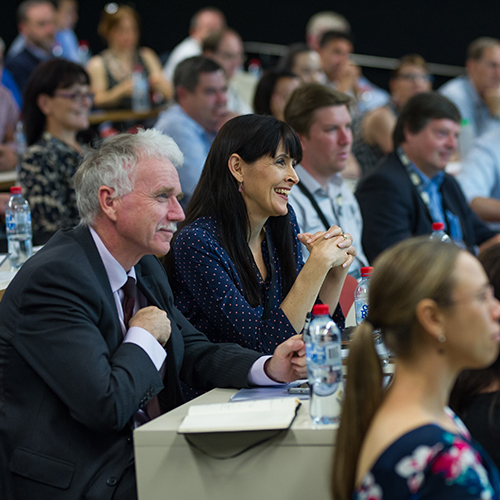
In 2017, service industries account for more than 60% of all annual investment, GDP and jobs (IBISWorld, 2017). With new technology, robotics and the ever-changing consumer wants and needs of consumers, what will this industry look like in 33 years?
This is just one of the questions discussed at a Thought Leaders Conference at The University of Queensland (UQ) chaired by Professor Janet McColl-Kennedy and Associate Professor David Solnet from UQ Business School, earlier this month, focusing on where the service industry will be in 2050.
Co-hosted by UQ Business School and Australian National University, Theorising beyond the horizon: Service research in 2050 brought together some of the world’s most prestigious service scholars and thought leaders to explore and debate ‘where to from here?’ in a three day conference at the UQ campus and The Hilton, Brisbane.
Six key takeaways from the conference, included:
- A need to integrate the physical, digital and social realms of the customer experience.
- While robots and automation are already playing an increasing role in the customer experience, not everything will be (or should be) carried out my robots – the human touch will still be paramount for many industries.
- Big data will be all around us, but we will need better insights into what the data is telling us about customers and the customer experience.
- Platforms will change how service is delivered, with significant growth of platform-based business models anticipated.
- We will see a growth in peer-to-peer interactions and collaborations, rather than businesses and practitioners operating independently.
- Workers will be more agile and flexible and there will be more preamble boundaries between work and leisure.
These findings will be published in a Special Issue of the Journal of Service Management in late 2018; aiming to set service research priorities and shape future research, which will have implications for the industry as a whole – businesses and consumers alike.
The round table discussions were led by the following internationally acclaimed professors.
Track 1: Customer Experience Challenges: Bringing Together Digital, Physical and Social Realms
- Professor Ruth Bolton, Arizona State University, USA
- Professor Janet McColl-Kennedy, The University of Queensland
Track 2: Imagining the Future of Service Operations
- Professor Paul Maglio, University of California, USA
- Professor Byron Keating, Australian National University
Track 3: A Transformative Service Approach to Empowering a Worldwide Just Service Economy by 2050
- Professor Raymond Fisk, Texas State University, USA
- Professor Alison Dean, The University of Newcastle
Track 4: Midrange Theory and Service Engagement: A Key Component in Developing a General Theory of the Market
- Professor Roderick Brodie, University of Auckland
- Professor Simon Bell, The University of Melbourne
Track 5: Service Innovation: Lower transaction costs or valuable service concepts?
- Professor Tor Andreassen, Norwegian School of Economics, Norway
- Professor Line Lervik-Olsen, BI - Norwegian School of Business, Norway
Track 6: Robotics and Front Line Service
- Professor Jochen Wirtz, National University of Singapore
- Professor Paul Patterson, The University of New South Wales
Track 7: How Can Context Re-design Foster Innovation? Extending the Service Ecosystem View
- Professor Bo Edvardsson, Karlstad University, Sweden
- Professor Pennie Frow, The University of Sydney
Track 8: Predictions and prospects for service workers in 2050: A Leadership perspective
- Professor Mahesh Subramony, Northern Illinois University, USA
- Associate Professor David Solnet, The University of Queensland
“Theorizing beyond the horizon: Service research in 2050” was held from 2 – 5 November at the University of Queensland’s St Lucia Campus and the Hilton Hotel, Brisbane.



